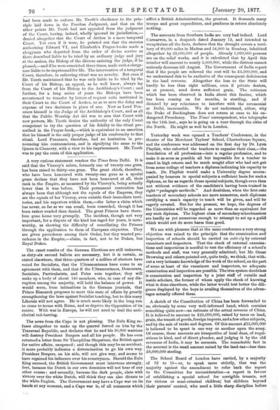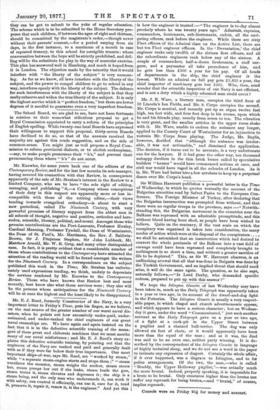The School Board of London have carried, by a majority
of 32 to 10— or, to speak more strictly, that was the majority against the amendment to refer back the report to the Committee for reconsideration—a report in favour of establishing a special school for corrigible truants, not for vicious or semi-criminal children; but children beyond their parents' control, who need a little sharp discipline before they can be got to submit to the yoke of regular education. The scheme which is to be submitted to the Home Secretary pro- poses that such children, if between the ages of eight and thirteen, should be committed by the magistrate's order,—though never without their parents' consent,—for a period varying from six days, in the first instance, to a maximum of a month in case cif repeated truancy, to this school for corrigible truants ; where conversation between the boys will be strictly prohibited, and dril- Beg will be the substitute for play in the way of muscular exercise. This plan has answered well in Hamburg, and much is hoped from it in London. The objection made by the minority that it would interfere with " the liberty of the subject" is very unmean- ing. As far as we know, all laws interfere with the liberty of the subject, and the power to compel children to go to school in any way, interferes openly with the liberty of the subject. The defence for such interferences with the liberty of the subject is that they really subserve and widen the true liberty of the subject. It is only the highest service which is " perfect freedom," but there are lower degrees of it needful to guarantee even a very imperfect freedom.



































 Previous page
Previous page